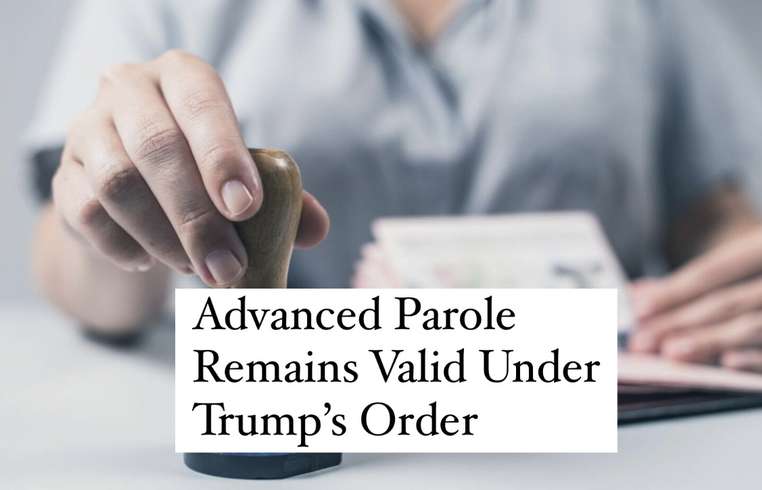
What you need to Know

In the ever-evolving landscape of U.S. immigration policies, one notable development has emerged surrounding advanced parole. Despite the Trump administration's focus on securing the southern border and implementing more stringent immigration control measures, a significant provision remains intact: advanced parole continues to be valid. This ruling allows certain individuals, including those with pending asylum claims or who are applying for lawful permanent resident status, to travel outside the United States and re-enter without jeopardizing their immigration status.
What is Advanced Parole?
Advanced parole is a process that allows individuals who are in the U.S. under certain immigration statuses to travel abroad and return without abandoning their applications for permanent residence. This provision is especially important for individuals who are adjusting their status (for example, applying for a green card) and wish to travel outside the U.S. during the waiting period.
Why Does This Matter?
Trump’s broader approach to border security focused on tough measures to curb illegal immigration. However, the continued validity of advanced parole highlights a nuanced aspect of U.S. immigration law. It is designed to protect individuals seeking permanent residence who may need to travel abroad for family emergencies, work, or other important reasons.
Even with stringent border control policies, advanced parole serves as a vital tool for many immigrants who need to keep their immigration cases moving forward. The administration’s position means that thousands of people, despite facing other immigration challenges, can maintain their status while fulfilling necessary travel plans.
What’s Next?
While the status of advanced parole remains valid, it is essential for applicants to stay informed about potential changes in immigration law. Court decisions, future executive orders, or shifting legislative priorities could still alter its application.
